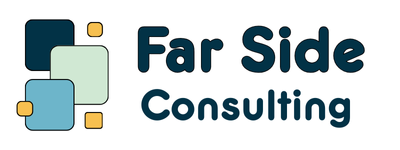You might not realize that nearly 75% of people searching for therapy services begin their journey online, often without knowing where to turn. If your practice isn't optimized for search engines, you're likely missing out on potential clients who need your help. SEO isn't just about keywords; it's about connecting with those individuals at the right moment. It's time to explore how effective SEO can elevate your practice and make a real difference in your community. What strategies can you implement to guarantee you're the first choice for those seeking support?
Key Takeaways
- SEO improves online visibility, helping therapy practices attract potential clients searching for services.
- Optimized websites enhance user experience, encouraging visitors to engage and reach out for services.
- Keyword research targets specific client needs, increasing relevant traffic to therapy websites.
- Better search engine rankings establish credibility and trust with potential clients.
- Tracking SEO metrics allows practices to measure success and refine their marketing strategies.
Understanding SEO for Therapists
When it comes to attracting clients, understanding SEO for therapists is essential. You might be wondering, what exactly is SEO? Search Engine Optimization (SEO) is the process of enhancing your online presence to rank higher in search engine results. Simply put, it's about making your therapy practice more visible to potential clients searching for services like yours.
By optimizing your website, you not only improve your chances of being found but also create a better user experience. When people land on your site, they should find valuable information, easy navigation, and clear calls to action. This keeps them engaged and encourages them to reach out for appointments.
Moreover, a solid understanding of SEO helps you stay competitive in a crowded market. When potential clients search for therapists in their area, you want to be among the top results. This visibility builds credibility and trust, making it more likely that they'll choose you over others.
In short, mastering SEO is a game changer for your therapy practice. It's not just about being found; it's about connecting with the clients who need your help the most. Investing time in SEO can lead to a thriving practice and a fulfilling career.
Importance of Keyword Research
Keyword research is absolutely essential for your therapy practice's online success. It's the foundation of your SEO strategy, helping you identify the words and phrases potential clients use when searching for therapy services. Without it, you might be targeting the wrong audience or missing out on valuable opportunities altogether.
By understanding the specific keywords that resonate with your target clients, you can tailor your website content, blog posts, and even social media to directly address their needs. Imagine a parent searching for "child therapy near me" or someone looking for "anxiety counseling." If you optimize your content around these terms, you increase your chances of appearing in search results, driving more traffic to your site.
Moreover, keyword research helps you stay ahead of the competition. It reveals gaps in the market that your practice can fill. When you know what people are searching for, you can create content that positions you as an expert in your field.
Ultimately, effective keyword research not only boosts your online visibility but also builds trust with potential clients, making them more likely to reach out for your services.
Tools for Effective Keyword Analysis
To effectively capitalize on your keyword research, you'll want to leverage the right tools that can streamline the process and provide valuable insights. Tools like Google Keyword Planner are essential as they help you discover keywords relevant to your practice and show search volume and competition levels. You'll find it easier to identify which terms potential clients are actually searching for.
Another excellent option is SEMrush, which offers in-depth analysis of organic search results and competitor keywords. This tool not only uncovers keywords but also shows how your competitors rank for them, giving you a strategic advantage.
Ahrefs is also worth considering; it provides detailed keyword metrics and helps you understand the backlink profile needed to rank for specific terms.
Don't overlook Ubersuggest, either. It's user-friendly and offers keyword suggestions along with SEO difficulty scores.
Finally, using AnswerThePublic can inspire content ideas based on popular questions related to your keywords. By utilizing these tools, you'll gain insights that can shape your content strategy and ultimately help attract more clients to your therapy practice.
Identifying Target Audience Keywords
Understanding your target audience's needs and concerns is essential for identifying the right keywords for your therapy practice. You want to reflect on the specific issues your clients face—be it anxiety, depression, relationship troubles, or stress management.
When you put yourself in their shoes, you can better grasp the language they use when searching for help online.
Start by conducting some research. Use tools like Google Trends or keyword planners to find terms related to your specialty. Look for phrases that potential clients might type into a search bar, such as "best therapist for anxiety" or "counseling for couples."
These insights will help you pinpoint what your audience is genuinely looking for.
Don't forget to take into account local keywords too! If you're in a specific area, incorporating your location can attract clients who prefer to seek therapy close to home.
Implementing Keywords in Web Design
When it comes to web design, seamlessly integrating your identified keywords can make a significant difference in attracting the right clients. By thoughtfully placing these keywords throughout your site, you enhance your chances of being found by those seeking therapy services.
Here are three key areas to focus on:
- Title Tags and Meta Descriptions: These elements are often the first thing potential clients see in search results. Guarantee your keywords are included here to improve visibility and click-through rates.
- Headings and Subheadings: Use your keywords in H1, H2, and H3 tags. This helps search engines understand your content's structure while also guiding visitors through your site.
- Content and Image Alt Text: Naturally weave keywords into your written content and don't forget to include them in your image alt text. This boosts both SEO and accessibility.
Measuring SEO Success in Therapy Practices
After you've integrated your keywords into your website design, it's time to measure how well your SEO efforts are paying off. Start by tracking your website's traffic using tools like Google Analytics.
You'll want to focus on metrics such as organic traffic, bounce rates, and average session duration. These figures give you insight into how effectively your content is engaging visitors.
Next, monitor your keyword rankings. Are the keywords you've targeted climbing up the search engine results? If they're not, it may be time to refine your strategy or explore new keywords.
Additionally, keep an eye on conversion rates. Are potential clients reaching out or booking appointments after visiting your site? That's the ultimate goal!
Don't forget to check your backlinks, too. Quality backlinks from reputable sites can greatly boost your SEO.
You can use tools like Moz or Ahrefs to track these.
Conclusion
In the world of therapy, SEO is like a lighthouse guiding potential clients to your practice amidst a foggy sea of options. By optimizing your site, you're not just increasing visibility; you're building trust and fostering connections with those in need of your services. Embracing effective SEO strategies can set you apart in a competitive landscape, ultimately leading to more inquiries and a thriving practice. Don't underestimate the power of being found—your future clients are searching for you!

